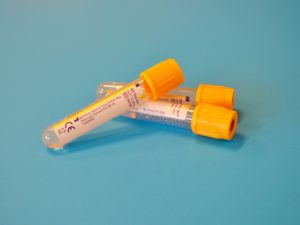Urologists in the UK are calling for the end of digital rectal exam (DRE) which are dreaded by many men and were once considered essential in prostate cancer checks.
The British Association of Urological Surgeons (BAUS), in collaboration with Prostate Cancer UK, says it’s time for GPs to stop offering this old-school test, describing it as clinically outdated, unnecessary, and a barrier to early diagnosis.
What’s Changing
BAUS now advises that men with a raised PSA (Prostate Specific Antigen) blood test do not need a rectal exam before being referred for further tests like MRI scans or biopsies. The rectal exam just isn’t good at spotting cancer. Furthermore, it’s putting men off getting checked altogether.

MRI imaging and modern biopsy methods have made prostate cancer diagnosis more accurate than ever. In contrast, a DRE only assesses part of the prostate and often misses abnormalities. BAUS argues the exam adds “no clinical value” and is a “legacy” procedure that no longer belongs in modern care.
Stigma Still Strong
For many men, the “finger up the bum” has long been a source of fear and embarrassment. A survey showed over a third of men avoid seeing a doctor because they worry their symptoms aren’t serious, fear bad news, or feel too embarrassed.
This stigma has consequences. Men delay speaking to their GPs, and many are diagnosed too late which leads to the cancer being harder, or impossible, to treat.
BAUS and Prostate Cancer UK are clear: we need to remove unnecessary barriers. And for many, the rectal exam is exactly that.
What Should Happen Instead?
If you’re concerned about prostate cancer, ask for a PSA blood test. That’s the key starting point. If your PSA levels are raised, GPs can now refer you directly for an MRI — no finger involved.
GPs may still consider a rectal exam if symptoms persist despite a normal PSA. However, for the vast majority of men, a simple blood test is enough to begin the diagnostic journey.
A Big Change
This is a major change in practice. For decades, medical training insisted that not doing a DRE could be negligent. That’s now being challenged. The shift reflects the growing influence of patient experience and modern evidence over outdated routines.
Professor Ian Pearce, consultant urologist at Manchester University NHS Foundation Trust and president of BAUS said: “These findings are a real wake-up call. Far too often, we see men ignoring symptoms or delaying seeking advice from their GP because they’re embarrassed or think it’s not serious enough.
We are urging men to know their bodies, know what is normal for them – whether that’s checking for lumps and bumps or noticing that they’re urinating more often – and to check in with a healthcare professional, don’t check out and think it’s not urgent or important enough.
Our message is simple: checking in on your health today could save your life tomorrow. A conversation with your GP could spot an urgent issue and lead to an early diagnosis, with treatment options and outlooks vastly improved as a result.”
Conclusion
If you’re over 50, Black, or have a family history of prostate cancer, your risk is higher. Don’t let outdated procedures or awkward conversations put your health at risk.
💡 Take 30 seconds to check your risk using Prostate Cancer UK’s online tool
💬 Talk to your GP about getting a PSA blood test
🙅♂️ Remember you can say no to the rectal exam and still get checked properly


